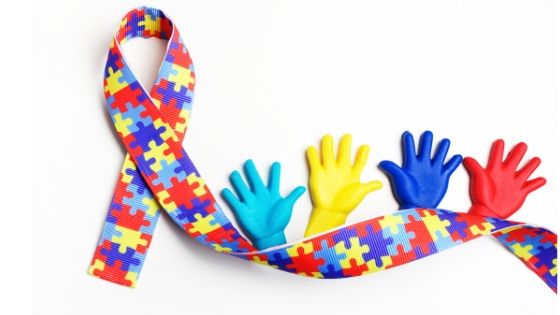Understanding Autism
It is a development-related condition that children mostly under the age of 3 suffer from. Children with autism don’t just have impaired communication but also suffer from hindered cognitive development. They lack social skills and generally prefer to stay distant. It is a neurological disorder also known as Autism Spectrum Disorder, and has the following important characteristics:
- The first and most noticeable characteristic is the repetitiveness of activities.
- They usually don’t like any change in their daily routine. When such a change is made, they can react strongly and unpleasantly to it.
- When touched, they can respond unusually.
Now, let’s look at what issues in speech they generally show and why speech therapy is so important for them. Although different kids show different problems, some common issues are:
- Many avoid verbal communication entirely.
- Making harsh guttural sounds, shrieks and cries instead of speaking.
- Repeating words that other people sayis also common and is known as echolalia.
- Some can say meaningful sentences and phrases, but their tone can be generally flat or unexpressive.
The above mentioned are the most common symptoms autistic children show in speech. Now, let’s discuss what issues they face when communicating:
- Children who have autism avoid eye-to-eye contact and usually don’t make use of gestures when communicating.
- A lot will fail to understand the context of words other than what they are familiar with.
- Understanding the meaning of words and sentences in general is also difficult for them.
- They lack the ability to use language creatively.
Since autism and speech are so closely related, a child suffering from this condition can be hugely affected in the area of communication. Since they find it difficult to communicate both verbally and nonverbally, speech therapy becomes a necessity. Some of the techniques’ speech therapists use for treatment are as follows:
- They massage the lips and facial muscles of the patient or make them do certain exercises to improve their speech articulation.
- Sometimes they also make the individuals sing specially composed songs to help them understand the concept of rhythm, intonation, etc.
- Typing or signing is also used.
- The use of electronic talkers is also common.
- Pictures are an essential element of the entire process. In fact, a lot of therapists begin their treatment with pictures. Once the child learns to relate thoughts, emotions, and ideas with pictures, their communication skills get improved slowly.
With the right speech therapy, children’s ability to initiate communication improves considerably. They also get better at the articulation of words. In many cases, they begin to understand the intention behind all the things one says in different settings. Occasionally, they will show advanced communication abilities like saying goodbye at an appropriate time and location. Without a doubt, children with autism show positive results from this therapy over time.
Final words
From the description above, it is clear that speech therapy is extremely important for the treatment of autism in children. But results are desirable only when the therapy is tailored according to the needs and requirements of the child in question. With this tiny bit of caution observed, therapists can bring about significant improvement in how autistic children communicate.

